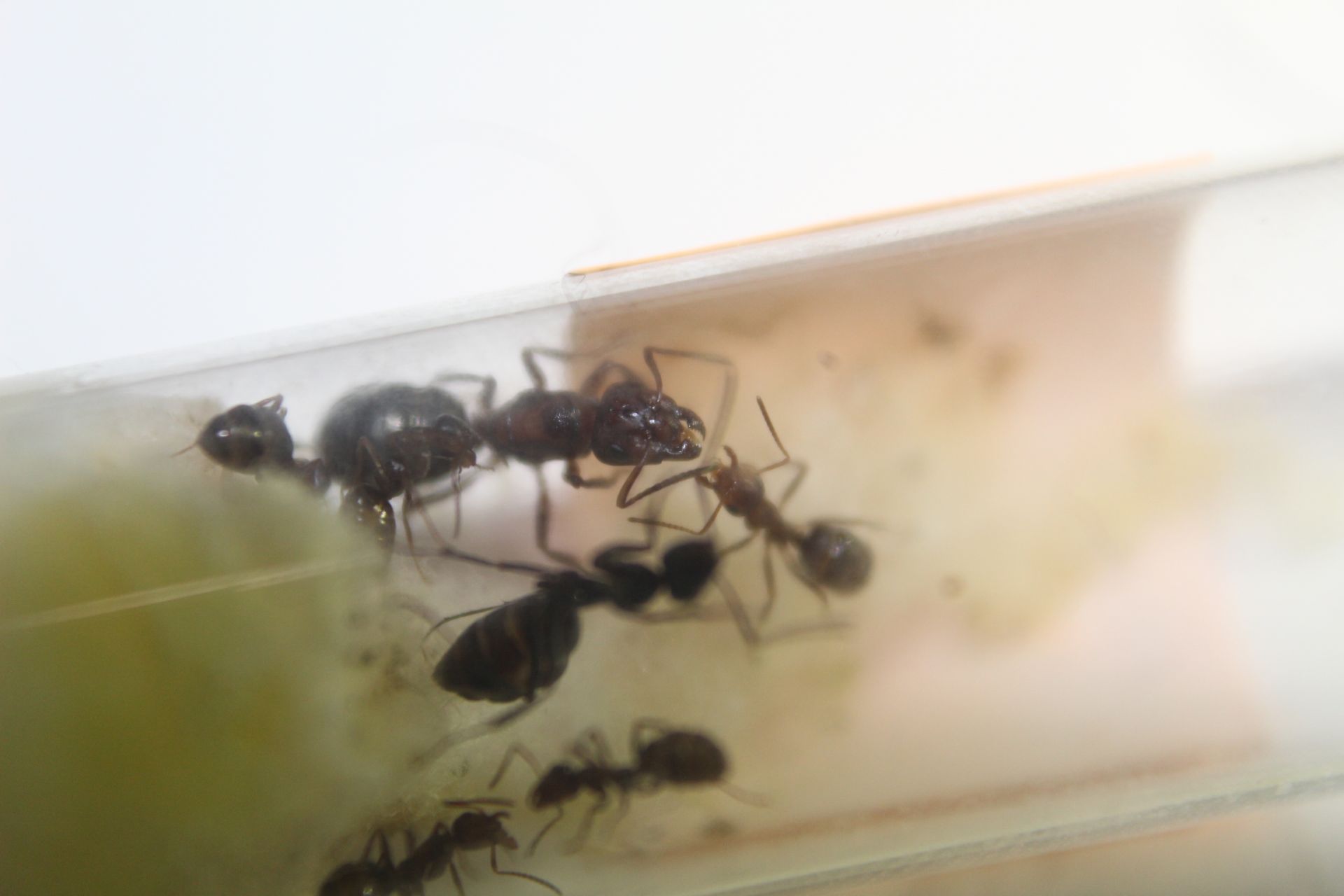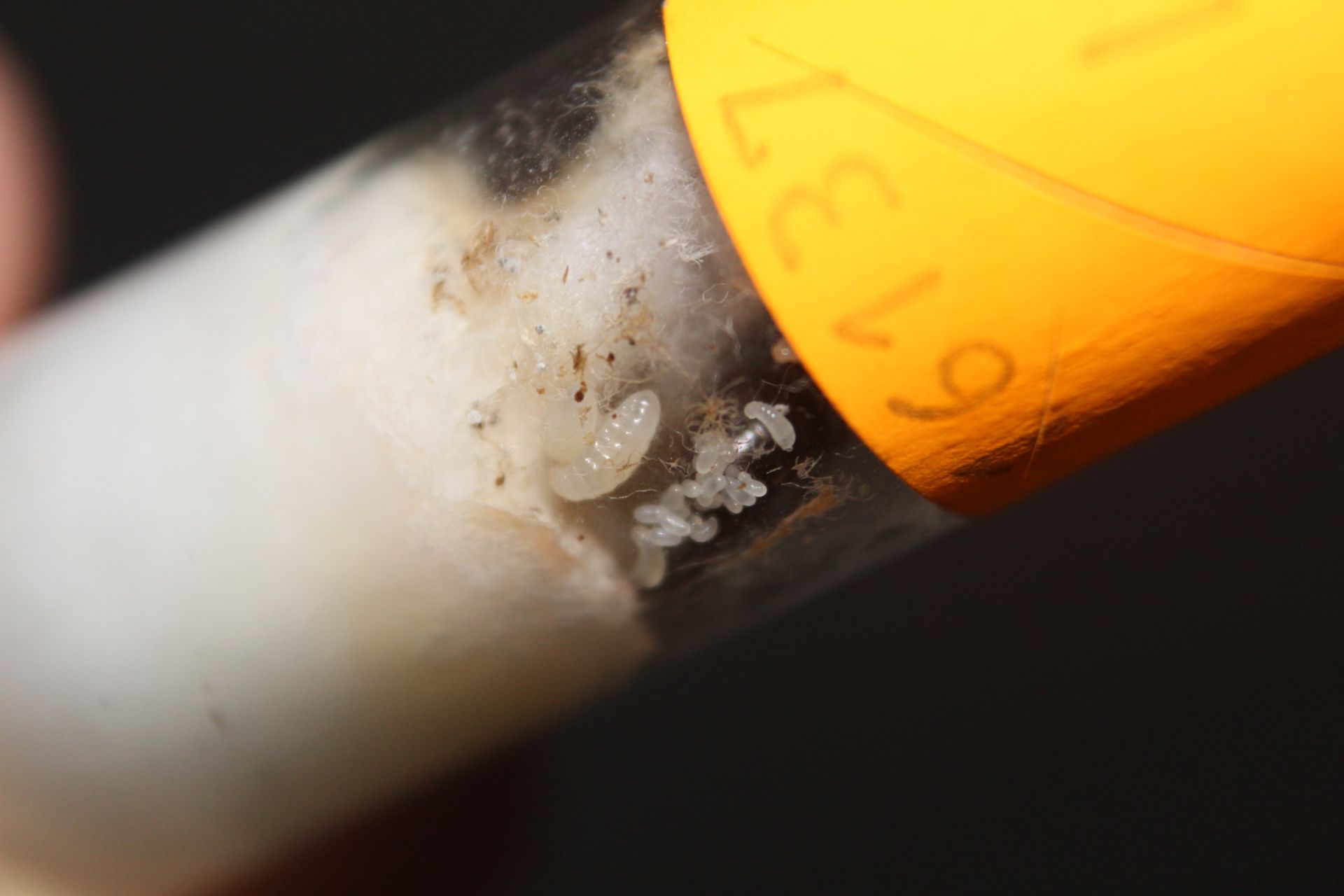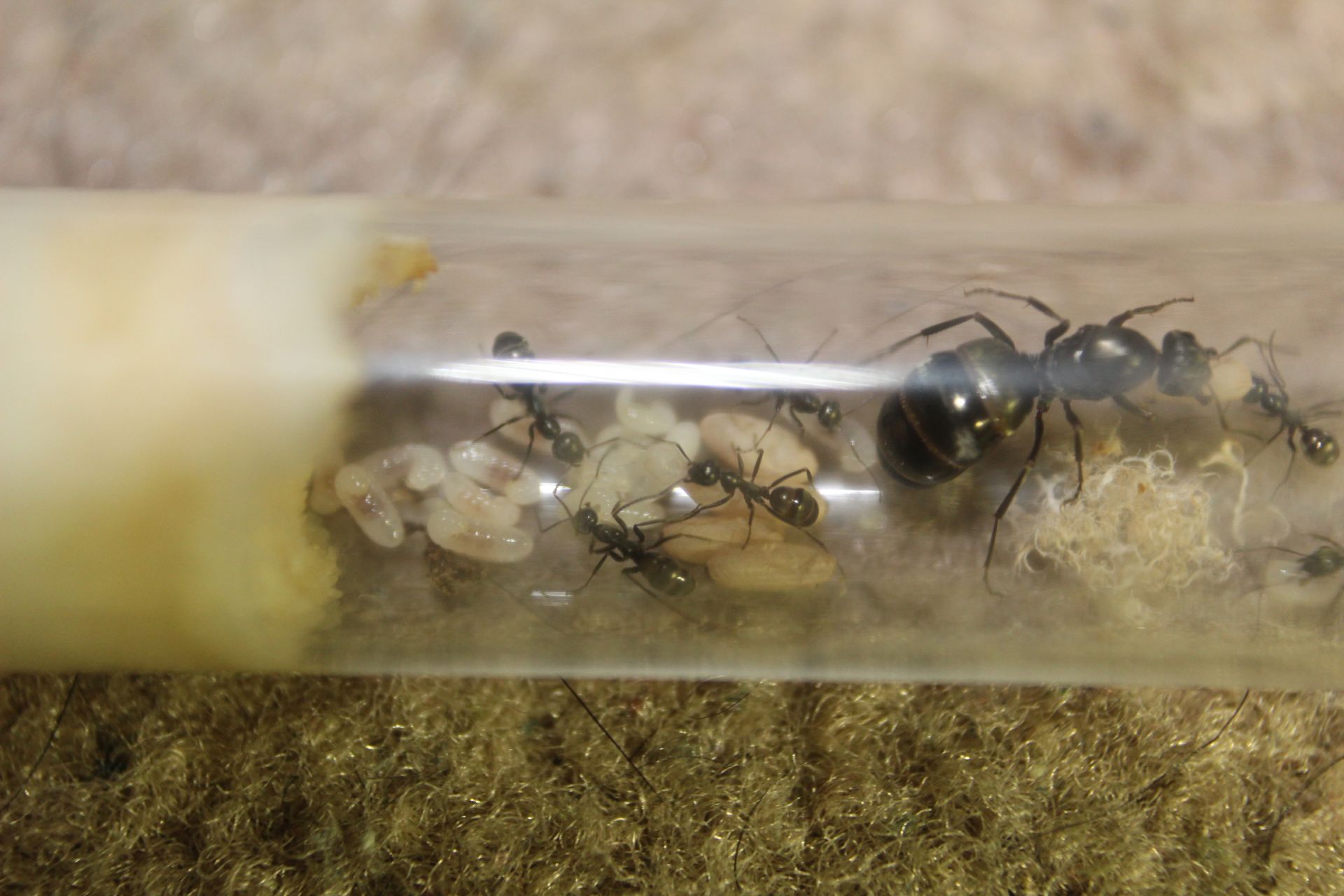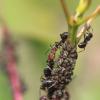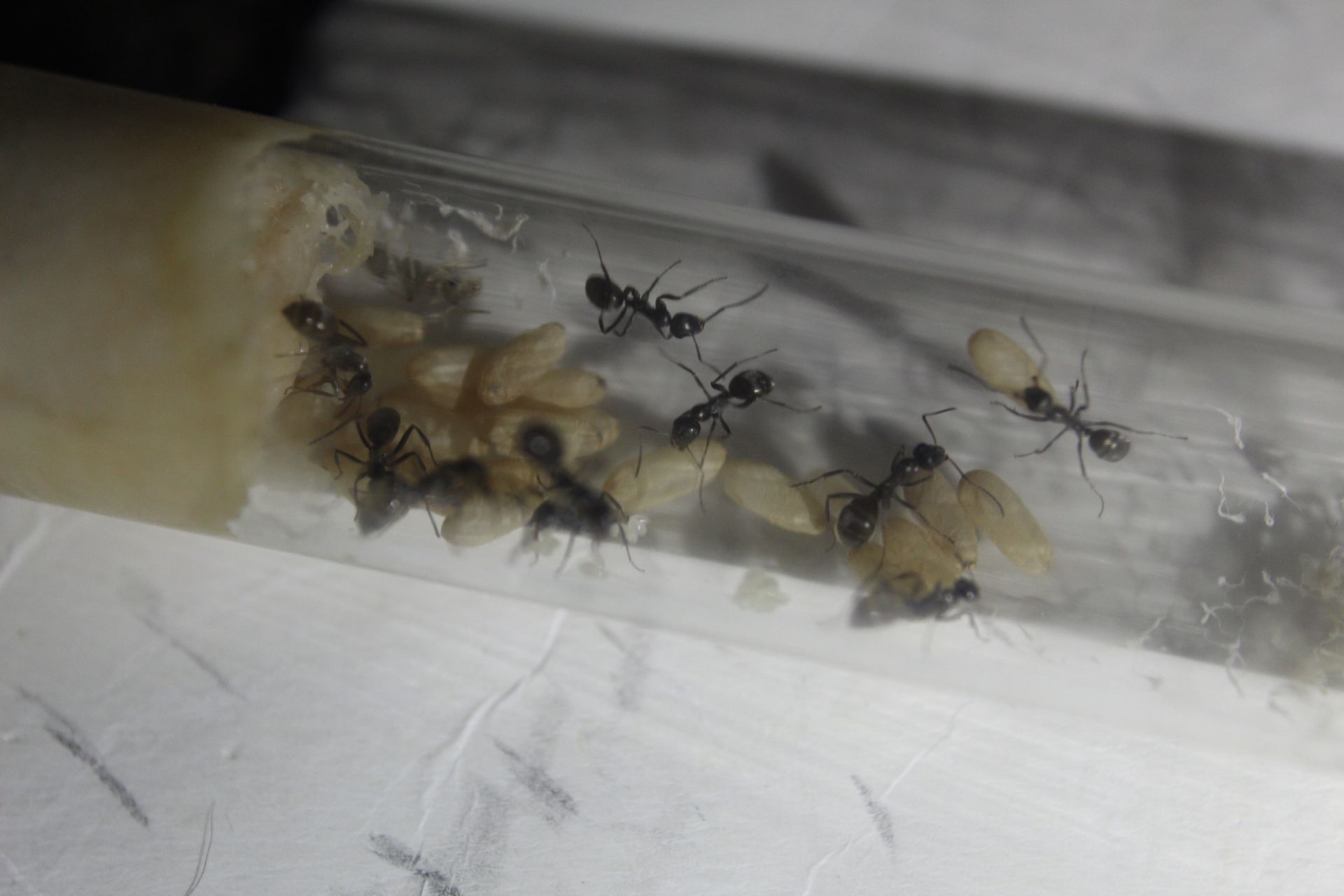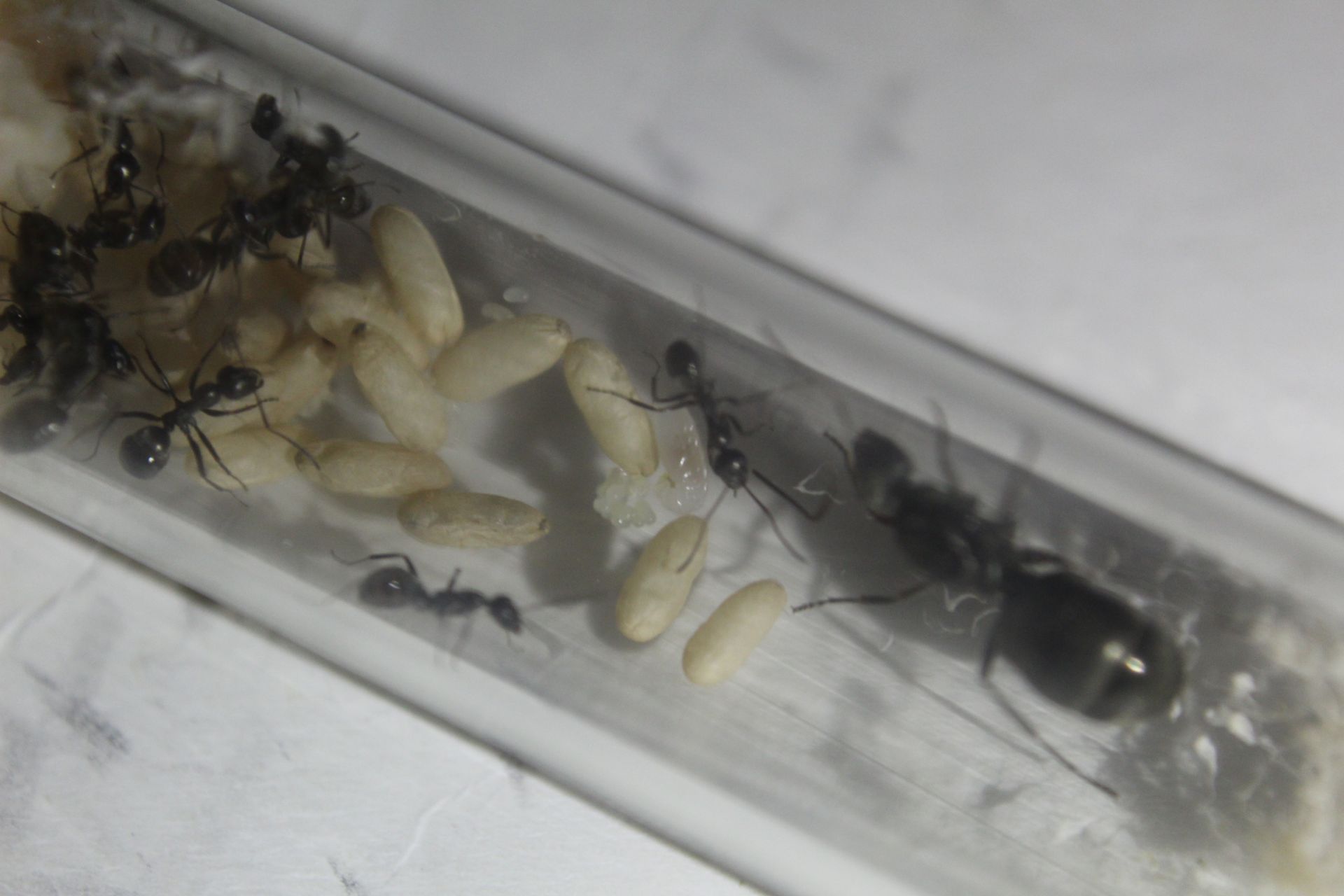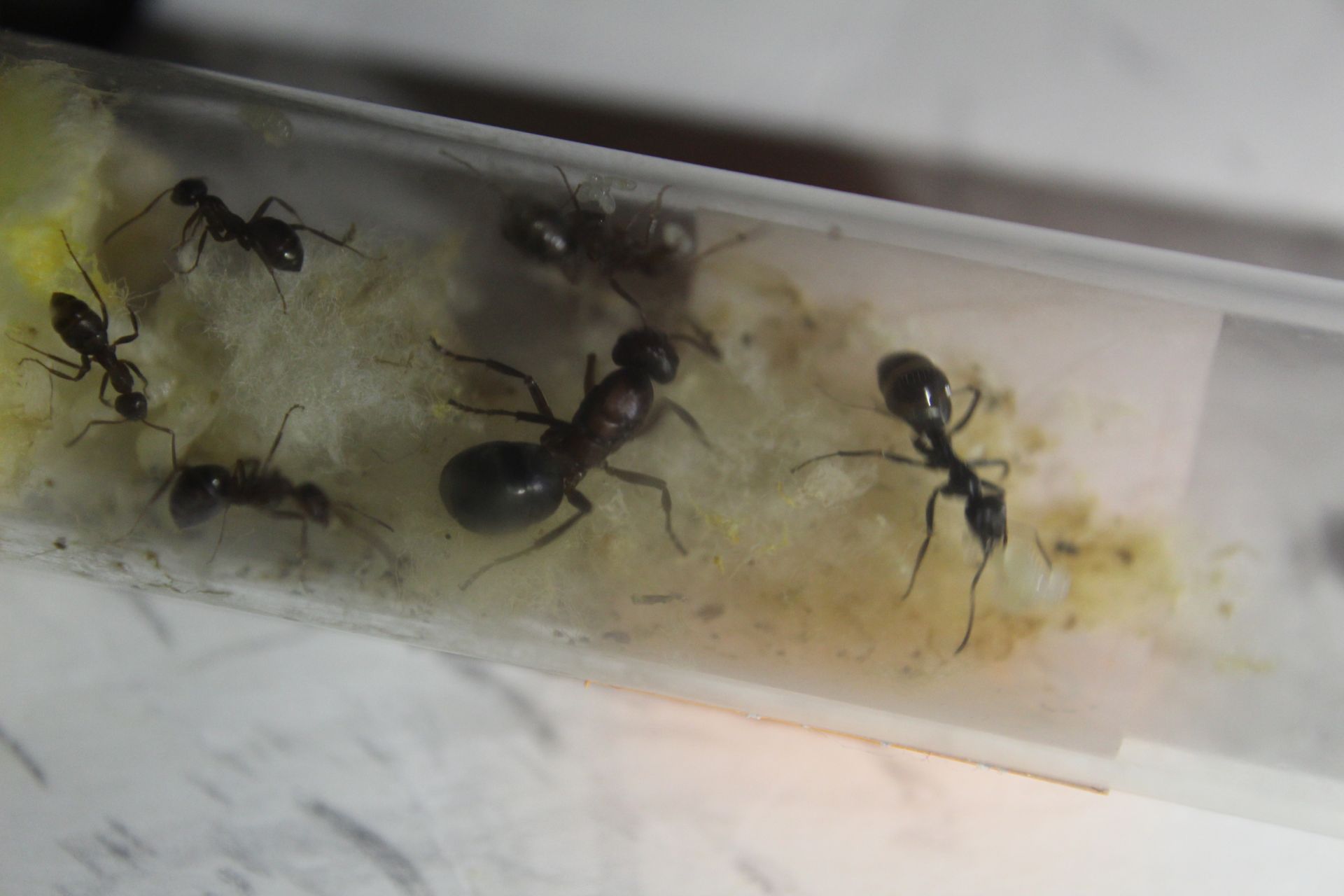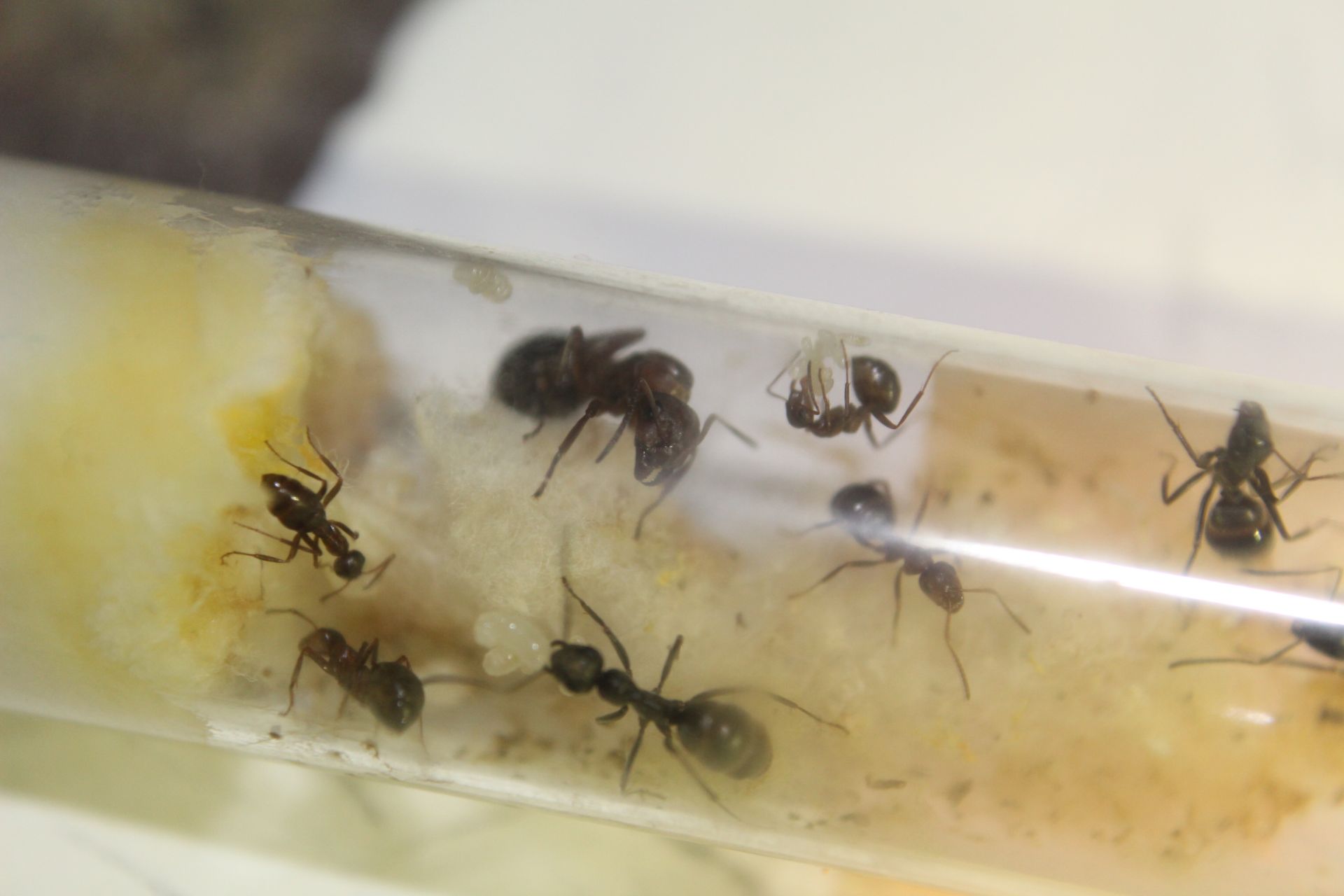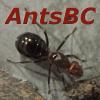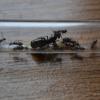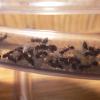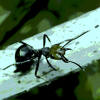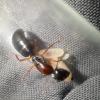And I'm assuming these slave raiders can at least get along without hosts? Otherwise Anthony here is going to have his hands full once the hosts die off.
As far as I understand, it's complicated.
Some species in the same group as this species can do just fine without a constant supply of host workers. Take F. aserva, which, I've heard, has been found to be able to found with hosts and then do fine later on without them once the colony has been established. However, in certain regions, aserva have been found to be able to found without any hosts at all, in a semi-claustral manner. This lends credence to ABC's theory that facultative / obligate founding varies depending on geographical location.
From what I've heard, the only species in this group that has been proven to be an obligate slave raider, meaning they cannot survive without regular host worker injections, is F. subintegra. As far as I'm aware, all of the other species in this group are still up in the air as to whether they are facultative, meaning they don't need constant host pupae, or obligate, meaning they do (except, of course, for aserva). I'm currently raising a F. wheeleri queen, who's just gotten her first nanitics. The test now is to see if these nanitics engage in any sort of brood care - this should indicate that Formica wheeleri are facultative slave makers, as far as I understand.
So the short answer is that we'll just have to wait and see. It is probably impractical to attempt to keep an obligate slave raider, so in the case the keeper would be out of luck with these queens, unfortunately.
